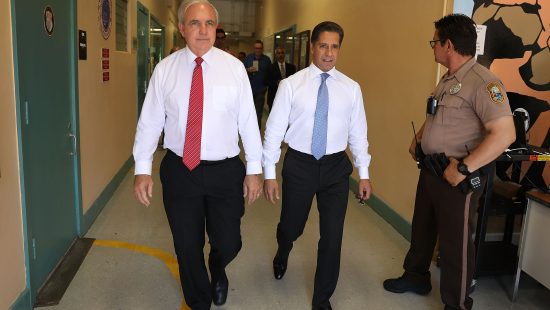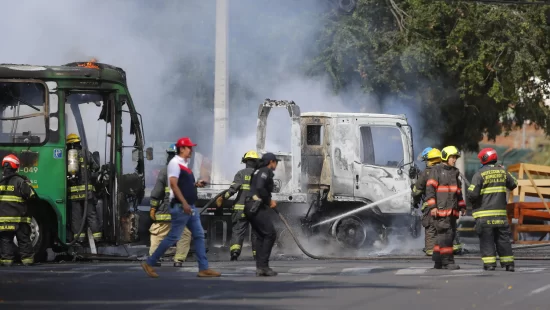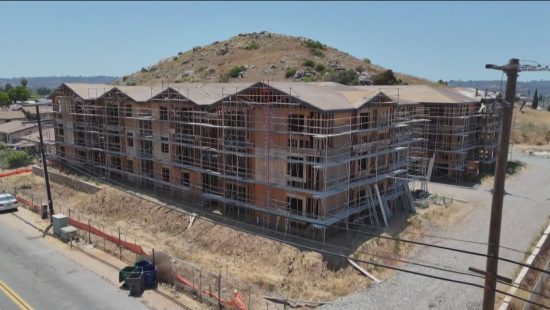
As premiums climb, survivors in working-class Latino communities say insurance delays and denials leave them in limbo.
California’s Insurance Commissioner Ricardo Lara has approved an unprecedented emergency rate increase for State Farm, the state’s largest home insurer, allowing the company to raise premiums by an average of 17% for homeowners, 15% for renters, and 38% for rental property owners starting June 1. The decision follows the catastrophic wildfires in Los Angeles County earlier this year, including the Eaton Fire, which destroyed more than 16,000 structures and led to over $7 billion in projected claims.
This marks the first-ever emergency rate hike approved in California, and it has quickly sparked concern among consumer advocates, elected officials, and especially members of Latino and low-income communities, many of whom were hardest hit by the fires and already struggle with housing affordability.
State Farm argued the hike was necessary to avoid what it described as a “severe financial crisis” that could lead to further policy cancellations. The company has experienced $5 billion in losses over the last decade and recently saw its financial rating downgraded. In exchange for the interim rate hike, State Farm will receive a $400 million cash infusion from its parent company and has agreed to pause policy non-renewals until the end of 2025.
Karl-Frederic Seligman, the administrative law judge who oversaw the three-day public hearing, described the approval as “a rescue mission to stabilize State Farm’s financial condition while safeguarding policyholders.”
Lara echoed that sentiment in his statement: “Protecting all State Farm customers and the integrity of our insurance market is an urgent matter.” He also emphasized that the new rates are temporary and that State Farm must fully justify its need for these increases at a full rate hearing scheduled for October.
Many Latino residents in Los Angeles County, especially those in working-class neighborhoods like Altadena and East L.A., feel abandoned by both State Farm and the state. Community advocates report that families are still living in hotels, vehicles, or crowded conditions while they wait for insurance payouts.
“These families paid their premiums faithfully, only to face delays and denials after losing everything,” said Joy Chen, leader of the Eaton Fire Survivors Network. “Approving this rate hike without addressing those claims sends a chilling message: You can pay for protection, but don’t count on it when disaster strikes.”
State Senator Sasha Renee Perez, a Pasadena Democrat, criticized the approval as prioritizing corporate interests over fire victims. “I know Latino families living out of garages and in overcrowded conditions because their claims haven’t been processed. They deserve answers—not higher bills.”
Consumer advocates, including Consumer Watchdog, have also accused State Farm of mishandling claims from the January fires. Although State Farm CEO Dan Krause said fewer than 3% of claims have resulted in complaints, the Insurance Department is investigating the company’s processes, especially around how it handles smoke damage and inventory requirements for lost items.
Krause rejected Commissioner Lara’s request to increase content coverage to 75% without requiring a full inventory, saying the existing 65% coverage already leads the industry.
Though the interim rate hike takes effect in June, the long-term decision hinges on October’s full rate hearing. If the final approved rates are lower than the interim ones, State Farm has pledged to issue refunds.
Still, advocates like Carmen Balber, executive director of Consumer Watchdog, warn that the approval sets a dangerous precedent. “Voter-approved Proposition 103 says insurers must justify their rates before charging higher premiums. Today’s decision reverses that process, and consumers—especially vulnerable communities—are paying the price.”
As California battles the climate crisis and the insurance market becomes increasingly unstable, Latino leaders and advocates are calling for greater transparency, oversight, and community representation in regulatory decisions.
“Latino families are often the most exposed and the least protected,” said María Gómez, a housing advocate in Boyle Heights. “We need insurance reforms that don’t just protect corporate solvency, but protect people—especially the communities that keep this state running.”








